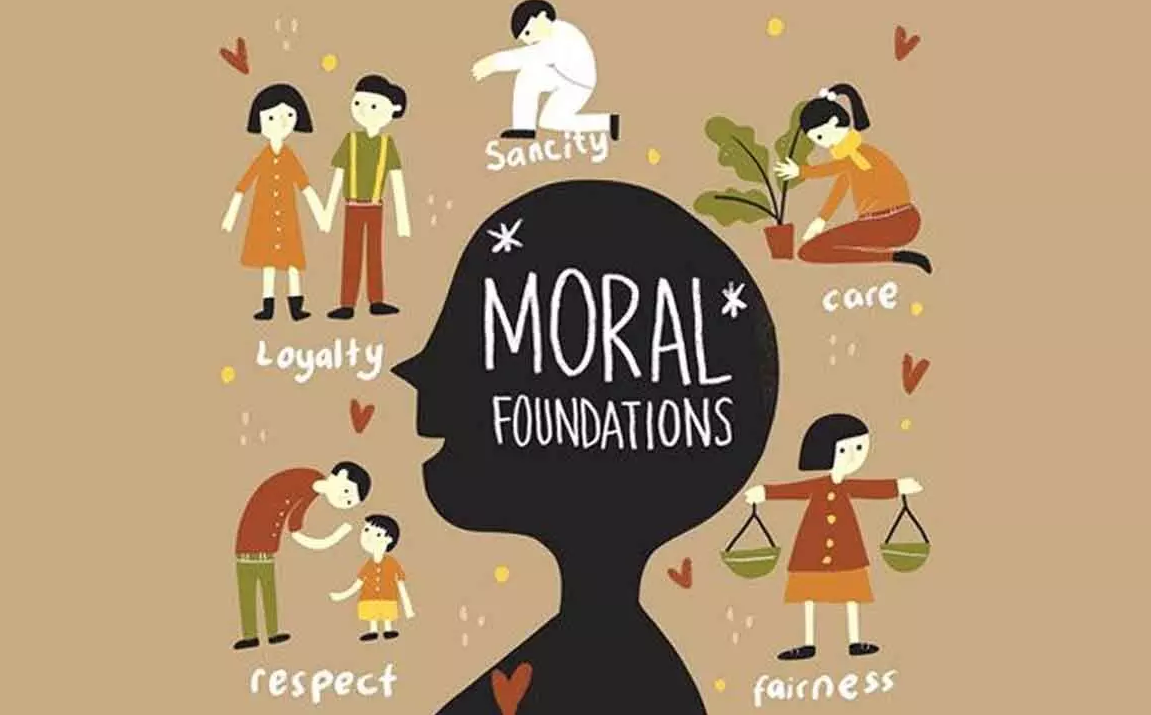In the tapestry of human existence, values stand as the threads that weave character and shape destinies. Billy Graham’s poignant words resonate through time: “If wealth is lost, nothing is lost; if health is lost, something is lost; when character is lost, all is lost.” A profound truth, yet one often overshadowed in the hustle and bustle of modern life.
Character, that elusive essence which defines us, emerges from the crucible of virtue and values instilled in the tender hearts of children during their formative years. It is the bedrock upon which our future conduct rests. Qualifications and intelligence, undoubtedly significant, pale in comparison to the luminance of a noble character that distinguishes one amidst the crowd.
The nurturing of character commences in the hallowed halls of preschools, where the seeds of values are sown with meticulous care. Values, these intangible beacons, constitute a code of personal and collective principles steering our thoughts, decisions, and actions. They confer emotional gravitas upon our choices, akin to a guiding compass in the tumultuous sea of life.
Moral values, in particular, serve as the sentinel of right and wrong, sculpting our behaviors and choices. They may be acquired from society, religion, or forged within the crucible of self-reflection. The family, our first crucible, passes down these moral legacies, imbibing them into the very marrow of our beings.
The ever-evolving epochs of human history reveal a dynamic flux in moral values. Societal norms, once deeply rooted in familial and communal ethics, have undergone a paradigm shift. In our contemporary age, individuals increasingly craft their moral compass, oftentimes departing from established conventions.
Moral values, the moral compass of life, adorn the conduct of children, youth, and adults alike. They crystallize the standards of righteousness, a cultural heritage imbibed in schools, workplaces, and our immediate environs. These beliefs, bestowed upon us by family and society, serve as the lodestar guiding our life’s journey.
India, an ancient beacon of values, imparts these moral virtues through familial wisdom. The young are nurtured to revere their elders, an act steeped in respect and obedience. Such values inculcate a reverence for tradition and a sense of duty towards the generations that precede.
Among the multitude of moral values, some are universal, transcending borders and cultures. Truth-telling, a virtue of unwavering integrity stands paramount. Reverence for elders, repositories of wisdom, is another cornerstone. Loyalty to one’s work and unwavering integrity further adorn this ethical tapestry.
Historical narratives are replete with luminous examples of moral values shaping destinies. The epic of Ramayana echoes through time, where Lord Ram’s unswerving commitment to his father’s word led him into a fourteen-year exile. His spouse, Sita, and his brother, Laxman, exemplified a moral code of following duty over desire.
However, the contemporary milieu paints a contrasting picture. The erosion of moral values is evident in the abandonment of elderly parents, left to wither in lonely isolation. Petty familial disputes, born of disregard for these values, fracture relationships.
Modern society often witnesses the normalization of vices, such as smoking and drinking in the presence of elders and children. These actions, anathema to traditional values, threaten the moral fabric of society, particularly the impressionable young.
Recognizing this moral declension, governments emphasize the teaching of values in schools. The youth, torchbearers of tomorrow, are entrusted with these timeless principles to kindle a brighter future.
Moral values, mirrors to our character, demand introspection. Blaming the younger generation is futile, for they mirror the examples set by their predecessors. Our actions and choices mold their values. Thus, it falls upon us, as torchbearers of tradition, to illuminate the path. Children, those keen observers of their surroundings, will emulate what they witness. As we inculcate moral values into our lives, they will surely follow.
In this collective effort, moral values become our collective character and strength. The practice of these values promises a harmonious existence, bequeathing a luminous legacy to the generations that follow. Amidst scientific and technological progress, the importance of these values endures, shaping not only character but society itself. Parents, remember, children are sponges, absorbing the ethos of their environment. Let your homes radiate the light of goodness and let your actions be their guiding stars.
In this age of rapid scientific and technological advancements, as political landscapes shift and economies surge, the enduring importance of moral values becomes ever more apparent. The moral compass that guides us is not a relic of the past but a lodestar for our collective future.
The very act of imparting values to our children today is a momentous responsibility, one that will cast a long shadow into their adult lives. Young minds, akin to blank canvases, eagerly soak up the hues of their surroundings. It is imperative, then, that we paint a picture of integrity, empathy, and righteousness before them.
Consider, for a moment, the profound impact of truth-telling. As our children witness us unwaveringly upholding the banner of honesty, they internalize the principle that truth is sacrosanct. In a world where falsehoods can often seem seductive, this simple virtue stands as a bulwark against moral erosion.
Respect for elders, a timeless tradition, not only bridges the generation gap but also nurtures a sense of interdependence. It is a lesson not limited to familial bonds but extends into our interactions with the world at large. Our children, observing our deference to the wisdom and experience of our predecessors, learn the value of humility and interconnectedness.
Loyalty to one’s work and unwavering integrity are values that reverberate in the chambers of progress. When our young ones see us dedicating ourselves wholeheartedly to our tasks, they glean the essence of commitment and diligence. Moreover, when they witness the unwavering ethical standards by which we navigate our professional lives, they understand the priceless worth of integrity.
As we traverse this ever-evolving landscape of values, it’s crucial to recognize that moral evolution doesn’t equate to moral degradation. Rather, it’s a call to adapt and expand our moral horizons, incorporating new insights while upholding the timeless virtues that anchor us.
In the grand tapestry of human existence, the importance of teaching values is akin to weaving threads of gold into the fabric of society. It’s a sacred duty, a legacy, a torch passed from one generation to the next. The character we shape today in our children will be the bedrock of the society they build tomorrow.
So, remember, as you walk through life’s labyrinth, your actions ripple through time. Your adherence to values today molds the character of future generations. Embrace this noble endeavor, for in it lies the promise of a brighter, more harmonious world—a world where the light of character and values shines undiminished, guiding humanity through the ages.
(The author can be reached at [email protected])








